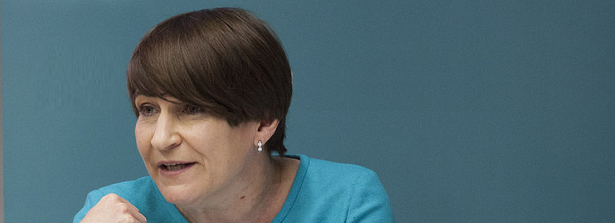Outcomes of the Parliamentary debate on Dutch efforts for global food security

On January 27, 2016, the Parliamentarian Committee on the Foreign Trade and Development Cooperation gathered to discuss three policy letters from Minister Lilianne Ploumen on international food security and food wastage. A lively debate on the current Dutch policy on food security was held where the role of knowledge for impact was acknowledged. Exportation of Dutch knowledge to improve food security was pinpointed as an important action for the Minister by many parties. The Minister stated that the Dutch efforts to export knowledge are indeed a priority in the new governmental policy they are working on, and promised various additional efforts to improve Dutch impact on food security.
Considering the letters were already a bit dated, the start of the debate focused on the current status and results of the policy actions presented in the letters. The November 2014 letter on the Dutch contribution to global food security was the main topic of the debate. In this letter, Minister Ploumen and the Minister of Agriculture proposed a framework for the Dutch government’s efforts to work on sustainable agriculture and food security together with all its partners in the coming years. The debate particularly concentrated on what members of Parliament felt was missing in the letter and Dutch policy. Examples included a lack of clear attention to land rights and land grabbing, consumption patterns (changing from animal protein to plant-based protein) and gender issues.
Policy coherence for food security
In addition, the importance of policy coherence in dealing with food security issues was emphasized by various members. There is a current tension between the approaches of different Ministries on the theme of food security. Roelof van Laar (PvdA) argued that the Ministry of Economic Affairs still supports large fertilizer programmes in Africa that are outdated and not in line with the views of the letters. In her reaction, Minister Ploumen said that policy coherence is part of Dutch policy and that she has highlighted this topic at the EU level as well. She also promised that she will discuss with the Ministry of Economic Affairs, the Ministry of Infrastructure and Environment and the Ministry of Security and Justice whether it is possible to coin food security as a strategic sector.
Intensification versus small-scale ecological agriculture
The discussion produced a clear divide between political parties lobbying for intensification of agriculture and parties focusing on local ecological agriculture for food security. Van Laar argued that while within international value chains intensification and scaling is easy to achieve, 80 to 85% of the food is produced by small-scale farmers who aren’t ‘scalable’. Minister Ploumen argued that businesses have a responsibility to include local farmers as well, and that companies like Nestlé and Unilever are willing to invest in small-scale local farmers and include them in the supply chain. The members were furthermore divided on whether international trade agreements (like TTIP) can foster food security and production or if focus is needed on regional trade.
Dutch knowledge and expertise for food security
The debate also addressed the importance of knowledge. The knowledge and expertise of Wageningen University and other Dutch actors were mentioned several times to underline their potential in ensuring food security. The importance of the exportation of Dutch knowledge on themes like development of seeds, spatial planning and improved agricultural techniques were pinpointed by most of the parties. All in all, there was a recognition of the importance of Dutch knowledge institutes and the significant role of knowledge for international practice. Minister Ploumen ensured that within the government not only the knowledge from within the Ministries but also from civil society and business is used to guide policy.
Investments in youth, children and women
In addition, the need to involve youth in agriculture was highlighted. A clear demand was distinguished to invest in youth programmes to further ensure young people’s participation in the agricultural sector. While some parties argued there is a need for more vocational agricultural education, the Minister suggested that the focus of the Dutch government is not just on vocational training but also training on-site, capacity building and the Young Expert Programme Agrofood. Yet, she promised an additional policy letter on food security which will elaborate on the role of vocational education, the position of women in farming and land rights. It will also include an update on the results and current activities within the Dutch food and nutrition security policy. In reaction to D66 and the PvdA who emphasized the importance of good nutrition, Minister Ploumen told the Parliament members that an additional five million euros from the food security budget will be invested to reduce malnutrition of children.
You can find the report of the Parliamentary debate on Dutch efforts for global food security online (in Dutch, “Verslag van een algemeen overleg, gehouden op 27 januari 2016, over voedselzekerheid”).
_ _ _
Related to this debate, on February 3, a Parliamentary Round Table was organized on Dutch food policy with representatives of science, civil society, and the Dutch food sector. During this session certain international food security challenges were also addressed. Bionext, the Dutch umbrella organization for organic food, proposed new taxation and subsidy schemes to ensure food security in the long term and encourage ecologically sustainable farming. The Youth Food Movement, the Dutch association of the Slow Food Youth Network, emphasized once more that the challenge for global food security is distribution, rather than improvement of production.
Input for the debate (in Dutch) from the different speakers can be found here. Or see #RTVoedsel.





